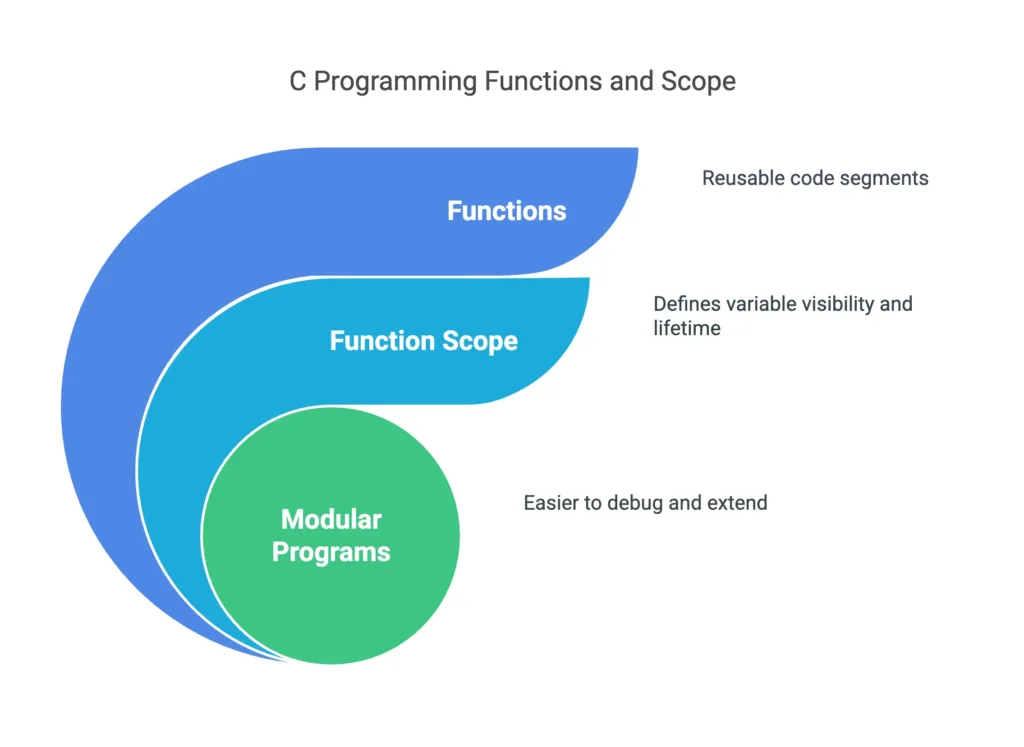Functions and scope
In C programming, a function is a block of code that performs a specific task. It provides a way to modularize your code and makes it easier to manage and understand.
Function Syntax
return_type: Specifies the data type of the value the function returns (e.g.,int,float,void).function_name: Name of the function, which is used to call the function.parameters: Input values passed to the function (optional).function_body: Actual code that defines what the function does.
return_type function_name(parameters) {
// function body
}
Function example
#include <stdio.h>
// Function declaration
int add(int a, int b);
int main() {
int result;
result = add(5, 3); // Function call
printf("Sum is: %d\n", result);
return 0;
}
// Function definition
int add(int a, int b) {
return a + b;
}
Function Scope
- Global Scope: Variables declared outside of any function have global scope and can be accessed from any part of the program.
- Local Scope: Variables declared inside a function have local scope and can only be accessed within that function.
Variable Scope Example
#include <stdio.h>
int globalVar = 10; // Global variable
void func() {
int localVar = 5; // Local variable
printf("Global variable: %d\n", globalVar);
printf("Local variable: %d\n", localVar);
}
int main() {
func();
// printf("Local variable: %d\n", localVar); // Error: localVar is not accessible here
return 0;
}

Static Variables
- Variables declared as
staticinside a function retain their values between function calls. They have local scope but retain their value across function calls.
void count() {
static int counter = 0;
counter++;
printf("Count: %d\n", counter);
}
int main() {
count(); // Output: Count: 1
count(); // Output: Count: 2
return 0;
}
Understanding functions and scope is crucial for writing efficient and organized C programs. By properly utilizing functions and understanding scope, you can write code that is easier to understand, maintain, and debug. Happy coding! ❤️
